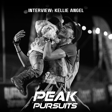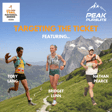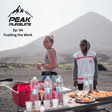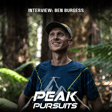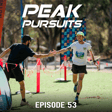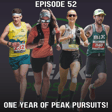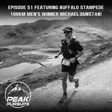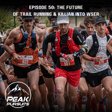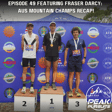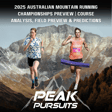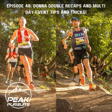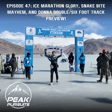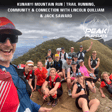
The Trail Less Traveled: Tyla Windham on Grit, Growth, and Family
In this episode of the Peak Pursuits Podcast, James catches up with Tyla Windham, an elite trail runner with an inspiring journey that’s anything but ordinary.
From tearing it up on dirt bikes to mastering mountain bikes, Ironman triathlons, and now ultra-running, Tyla’s athletic journey is one of resilience, passion, and relentless evolution. Fresh from an impressive race at the Buffalo Stampede 100K, Tyla shares candid insights into the highs, lows, and gritty realities of competing at an elite level while balancing his roles as a carpenter, father, and husband.
We unpack his strategies for managing intense training schedules alongside demanding physical work, the transformative power of strength training, and the mindset shifts that have elevated his race performance and life balance.
If you’re curious about optimising performance, overcoming adversity, and finding harmony between professional ambitions and personal life, this deep-dive with Tyla Windham is essential listening.
Vlad’s Strength For Trail Runners
***Don’t forget, use code PPP at Bix’s website for 20% off Bix products, exclusive to PPP listeners!***
Thanks for tuning in to Peak Pursuits! Connect with us on Instagram @peakpursuits.pod to share your thoughts, questions, and trail stories. Until next time, keep hitting the trails and chasing those peak pursuits!
Follow Tyla: Instagram | Strava
Follow James: Instagram | Strava
Music from #Uppbeat (free for Creators!):https://uppbeat.io/t/mood-maze/trendsetter
License code: K08PMQ3RATCE215R
